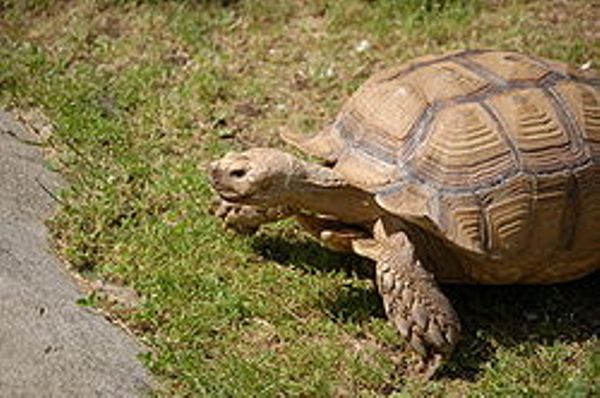
New York, Feb 3 (IBNS): Turtles’ brains have evolved slowly, but constantly, over the last 210 million years to reach a variety in form and complexity which rivals that of other animal groups, according to new research.
The study, led by the University of Birmingham, also discovered that the first turtles with a fully formed shell were very likely to be living on land and not in water or in an environment where they burrowed underground.
Turtles are one of the oldest vertebrate groups still alive today. Their origins date back nearly 250 million years, yet they have changed very little since then. Almost all fossil turtles looked very similar to modern turtles today and this probably enabled turtles to survive several mass extinctions.
An international team of scientists from the UK, Brazil and Germany used modern computer analysis to look at what happened to the turtle brain over this long period of evolution.
The team’s research, published in the journal Frontiers in Ecology and Evolution, focussed on the fossils of the oldest turtle with a fully formed shell: Proganochelys quenstedti, found in the Triassic sediments (ca. 210 million years) of Germany. Using computed tomography scanning of two fossil skulls, the researchers generated digital models of the brain of Proganochelys and compared them to brain models of modern turtles.
Dr Stephan Lautenschlager, lead author from the University of Birmingham’s School of Geography, Earth and Environmental Sciences, said: ‘Our results demonstrate that Proganochelys, the oldest turtle with a real shell, had a very simple brain structure. Vision and hearing were probably not very good, while the sense of smell was moderately developed.’
Results of this study further showed that the turtle brain increased in size and complexity over the course of evolution to modern turtles. Modern turtles show a wide variety of brain shapes and sizes, which reflects their sensory capabilities and their life styles.
Co-author Dr Ingmar Werneburg from the Senckenberg and University Tübingen, Germany, added: ‘Over a period of 200 million years the brain of turtles became more complex, allowing them to adapt to different habits and living conditions. This is very important as we see similar diversifications in other animal groups such as mammals and birds.’
The team’s results further helped to clarify some mysteries of turtle origins. Different competing hypotheses exist as to whether turtles originated in an aquatic, terrestrial or even fossorial (digging underground) environment.
Gabriel Ferreira from the University of São Paulo, Brazil, who also co-authored the study, explained: ‘By comparing the digital brain reconstruction of Proganochelys with those of modern turtles we can show that the first turtles with a fully formed shell were very likely living on land and not in the water or in an fossorial environment. It was only later that they explored those different habitats.’
Image: Wikimedia Commons
Support Our Journalism
We cannot do without you.. your contribution supports unbiased journalism
IBNS is not driven by any ism- not wokeism, not racism, not skewed secularism, not hyper right-wing or left liberal ideals, nor by any hardline religious beliefs or hyper nationalism. We want to serve you good old objective news, as they are. We do not judge or preach. We let people decide for themselves. We only try to present factual and well-sourced news.







